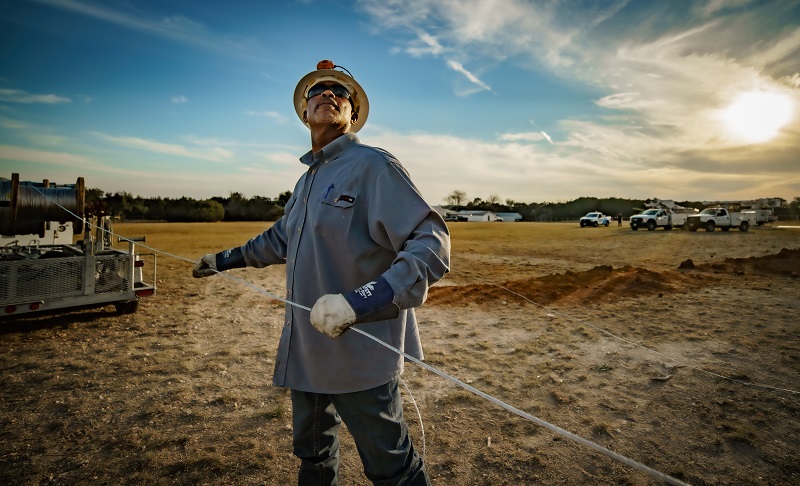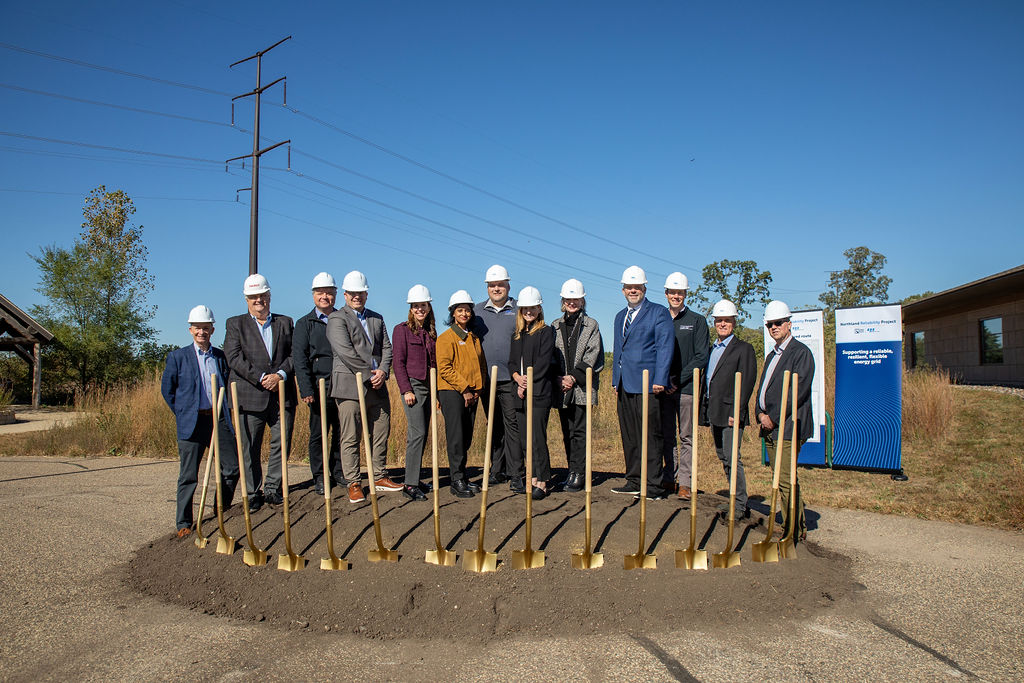It may seem impossible to explain how the electricity that powers your home arrives precisely when you flip a light switch, but one way to understand it is to think about the variety of skills and job roles it takes to provide such an important and dependable service.
In recognition of National Co-op Month, which is celebrated throughout October, as well as Careers in Energy Week (Oct. 16-20), Great River Energy is highlighting why electric cooperatives are great places to work.
Running electric utilities takes just about every skill imaginable — some call for the physical ability to climb a pole, others the technical know-how to create intricate cybersecurity systems. Some require the interpersonal skills of talking with a co-op member about how they can lower their electric bill. Others demand the logistical knowledge to get essential equipment delivered through a challenging supply chain.
An industry that depends on such a vast range of abilities offers job seekers a variety of career opportunities. Here are five ways the unique characteristics of electric co-ops make them a great place to work.
- Stability. You can count on homes and businesses needing electricity now and in the future. One analysis predicts electricity demand will grow even faster in the 2020s than it has the previous two decades. Energy careers offer excellent benefits and paths for career advancement with employees typically staying in the industry more than 15 years.
- Excitement. While utility work is reliable, it’s also at the cutting edge of innovation. Electrification is the centerpiece of the push toward the reduction of carbon emissions. The number of electric vehicles on the road is doubling every year, which means new perspectives are needed to figure out how to keep all those vehicles plugged in and charged. Two of the 20 fastest-growing occupations are wind turbine technician and solar voltaic installer. More than $120 billion each year is being spent to modernize the U.S. electric grid to manage new patterns of electricity use.
- Variety. The skills needed to work at an electric cooperative range from advanced college degrees to trade school, apprenticeship and on-the-job training. And the range of positions is vast: accountants, social media managers, IT specialists, engineers, human resources professionals, to name a few. There are more unique positions as well, such as drone operators to inspect power lines, data analysts to coordinate the flow of electricity and power plant operators to oversee electricity generation.
- It’s local. Much of the work to maintain electric service takes place in the local community. This means that not only can an electric cooperative worker make a living and raise a family in the place they choose to live, but if they decide to move to another part of the country, there will likely be career opportunities there as well.
- Satisfaction. A lineworker will tell you even when they’ve just climbed down from a pole in the middle of the night during a rainstorm, there’s no better feeling than knowing the power outage they’ve just restored brought light and heat back into the homes of hundreds of people. The same goes for the utility truck dispatcher, system resilience planners and the engineers creating the energy system for the future. Co-op workers can know they’re powering their neighbors and the nation.
Electric co-ops offer a unique business model that’s led by the members who use the electricity. It’s a form of business with a commitment to improving the quality of life for the local community, which can call for jobs like partnering with local groups to bring broadband to rural areas or work that’s as essential as keeping the lights on.
Visit greatriverenergy.com/careers to view job openings at Great River Energy or careers.electric.coop/jobseekers to search for electric cooperative jobs around the country.

 " data-object-fit="cover">
" data-object-fit="cover">